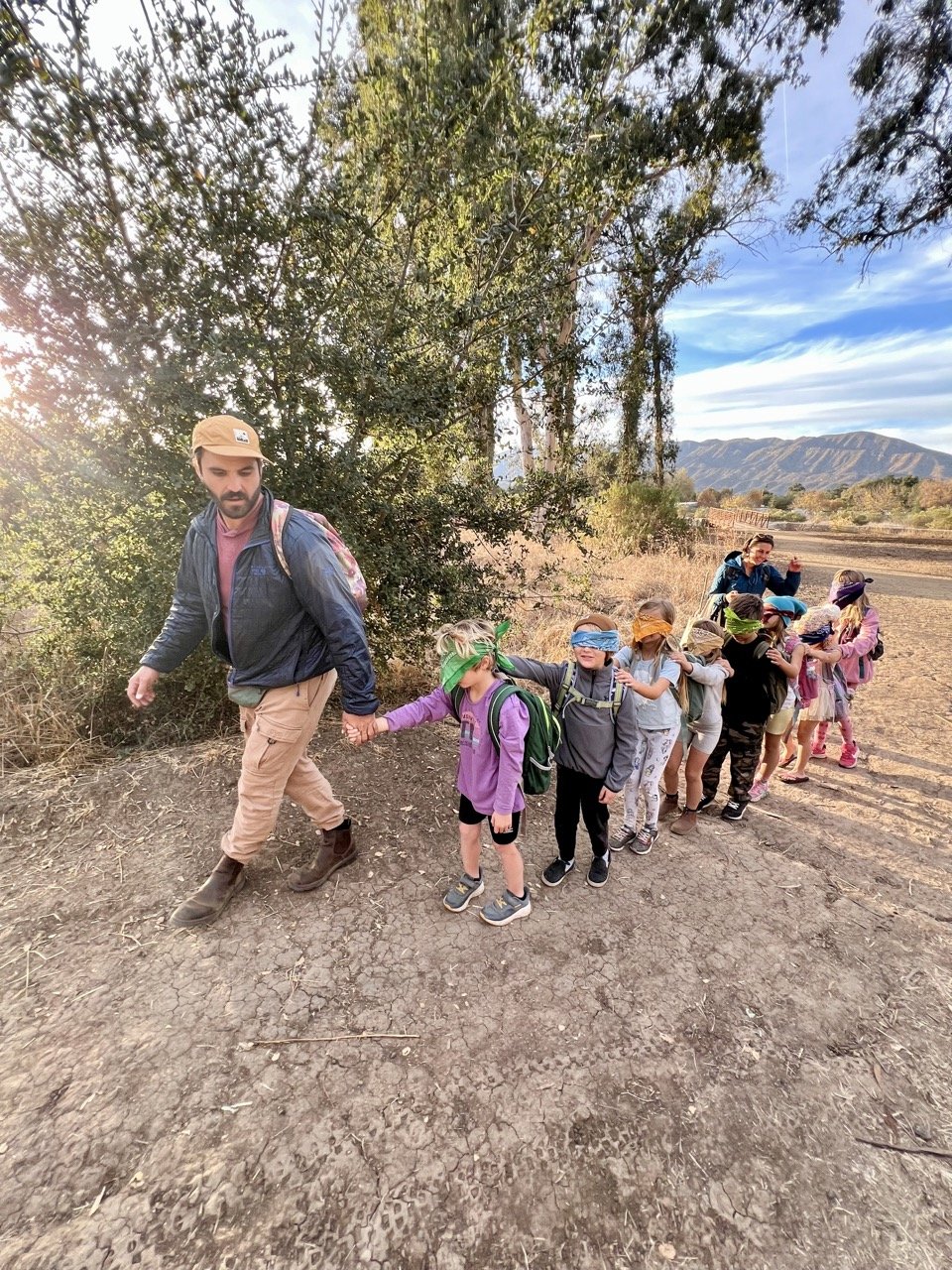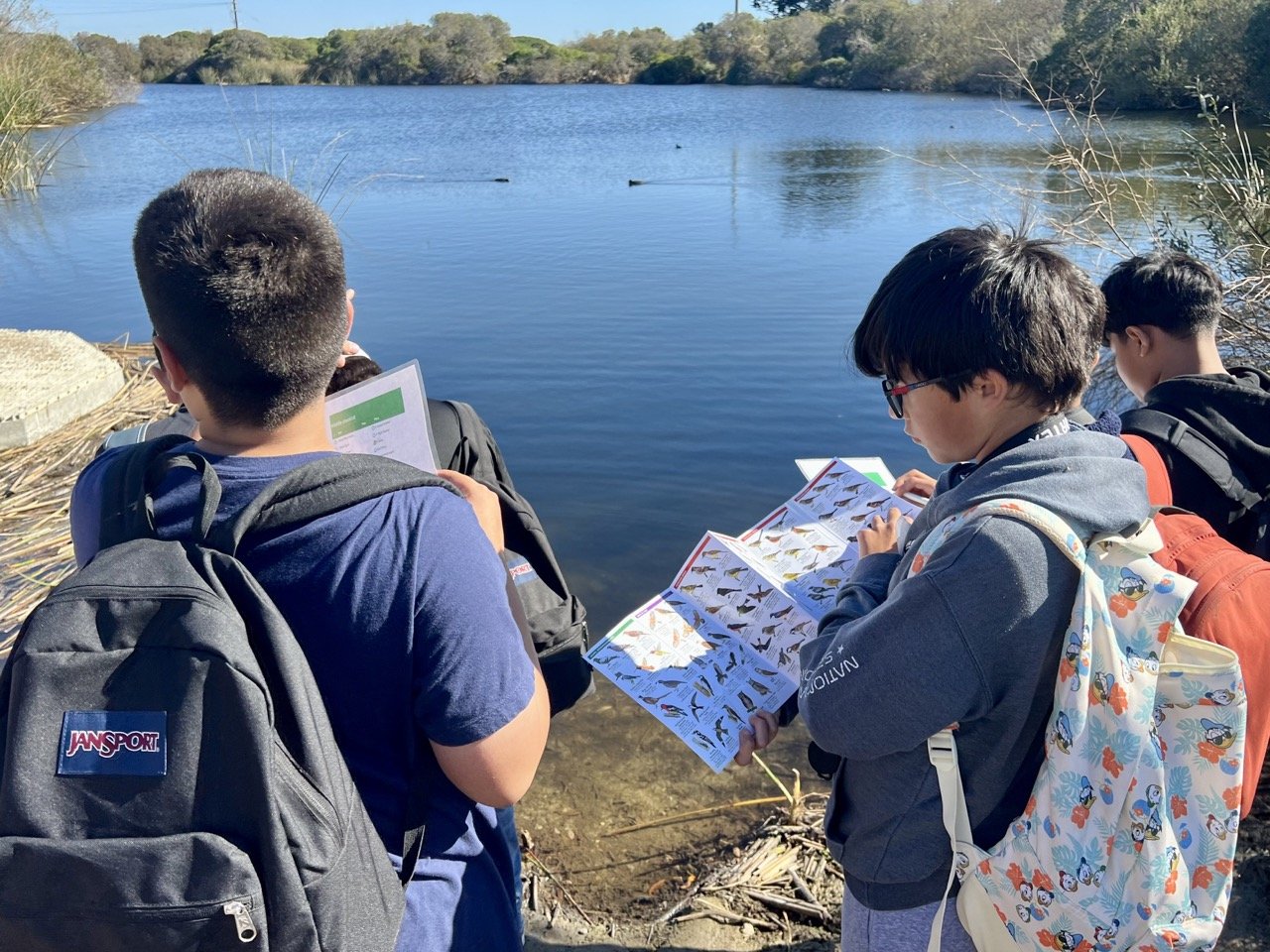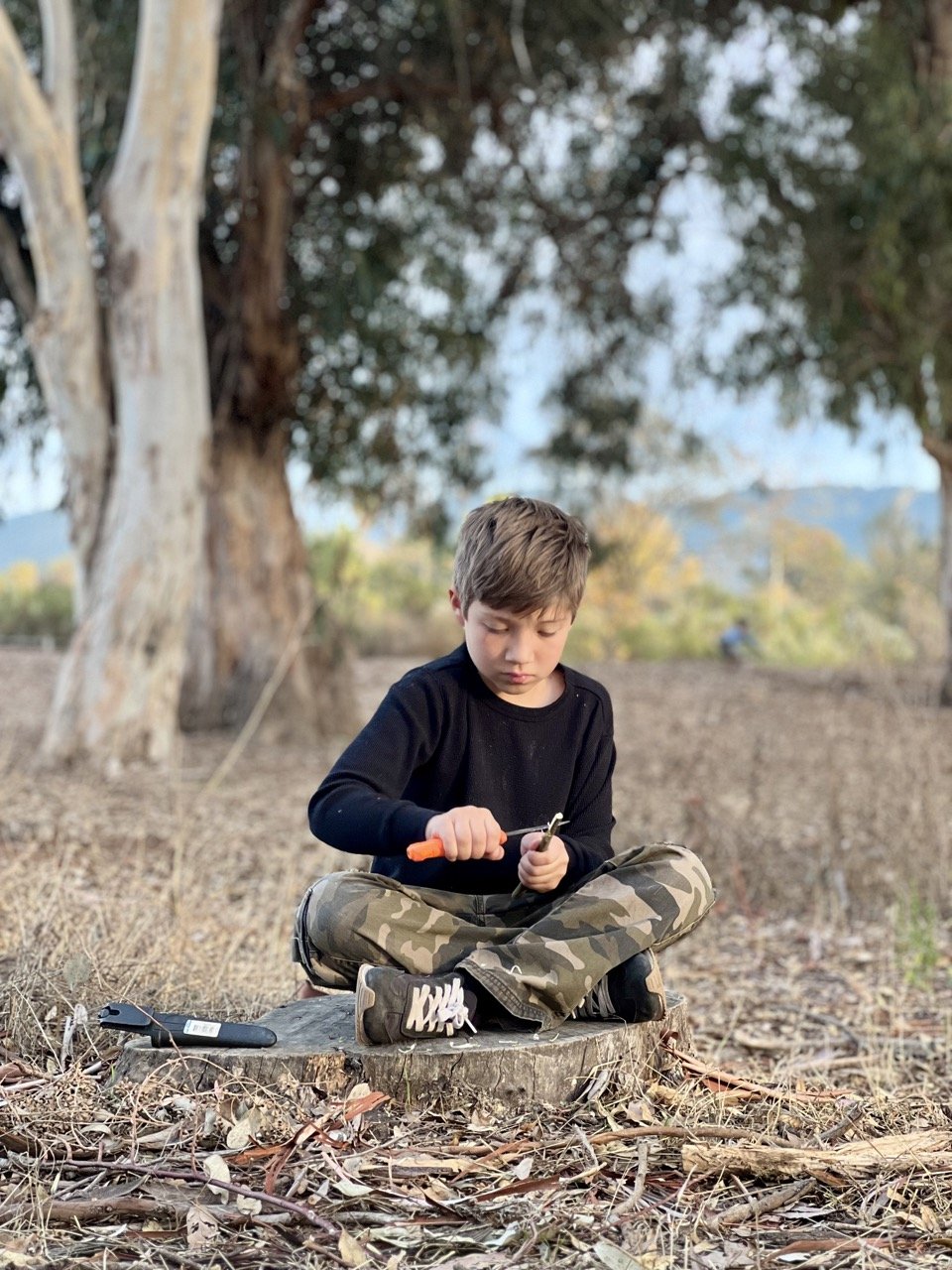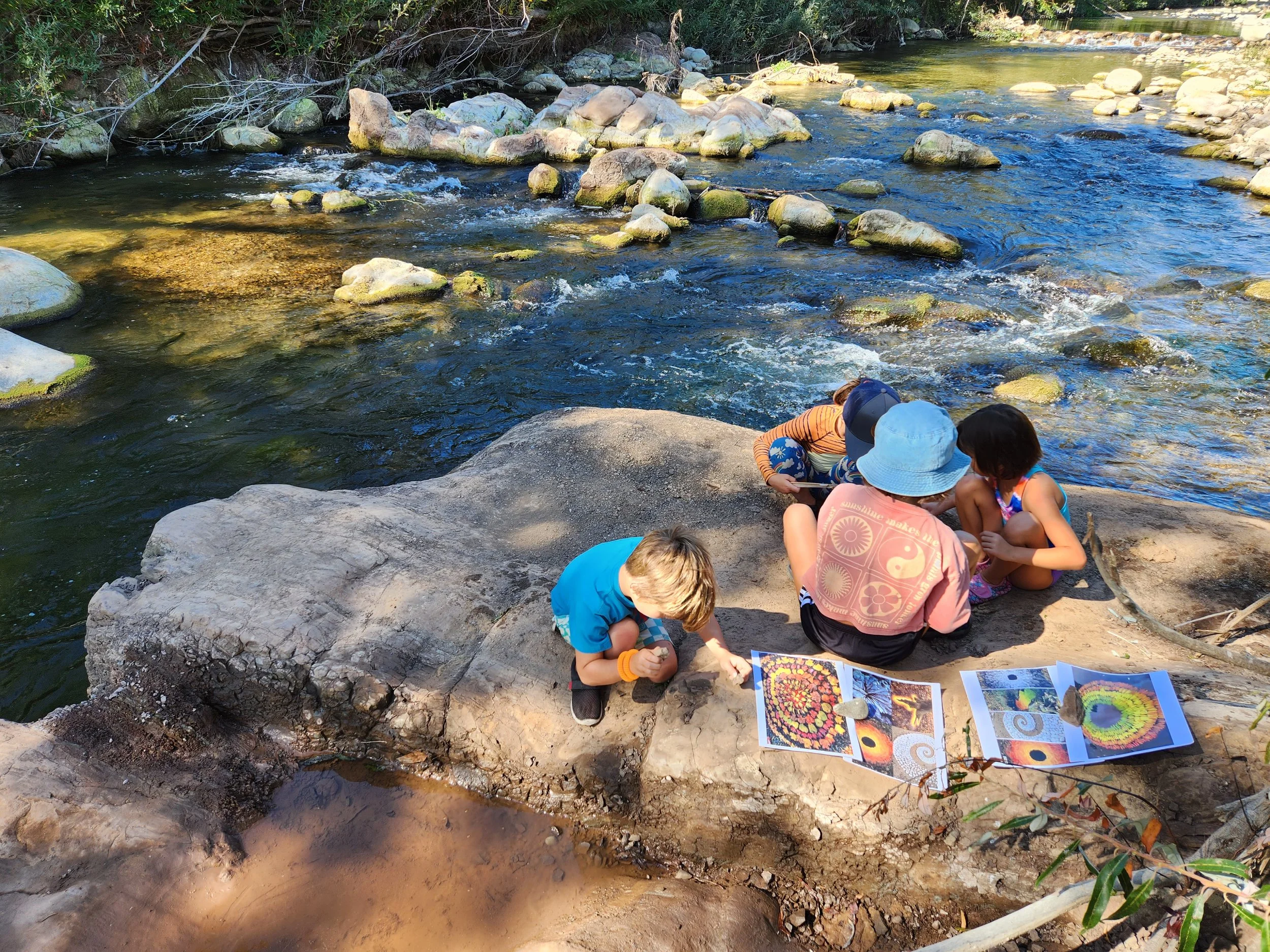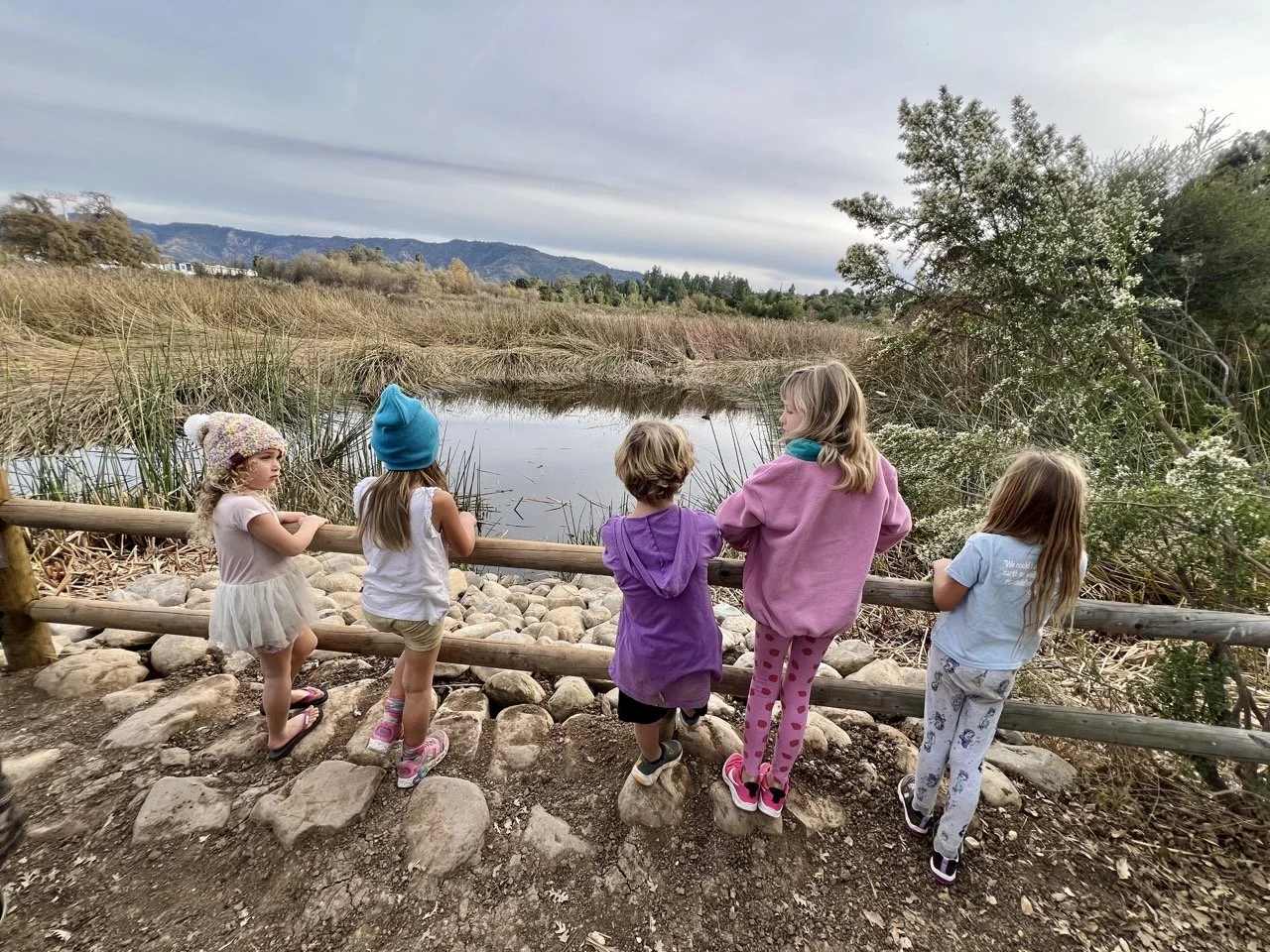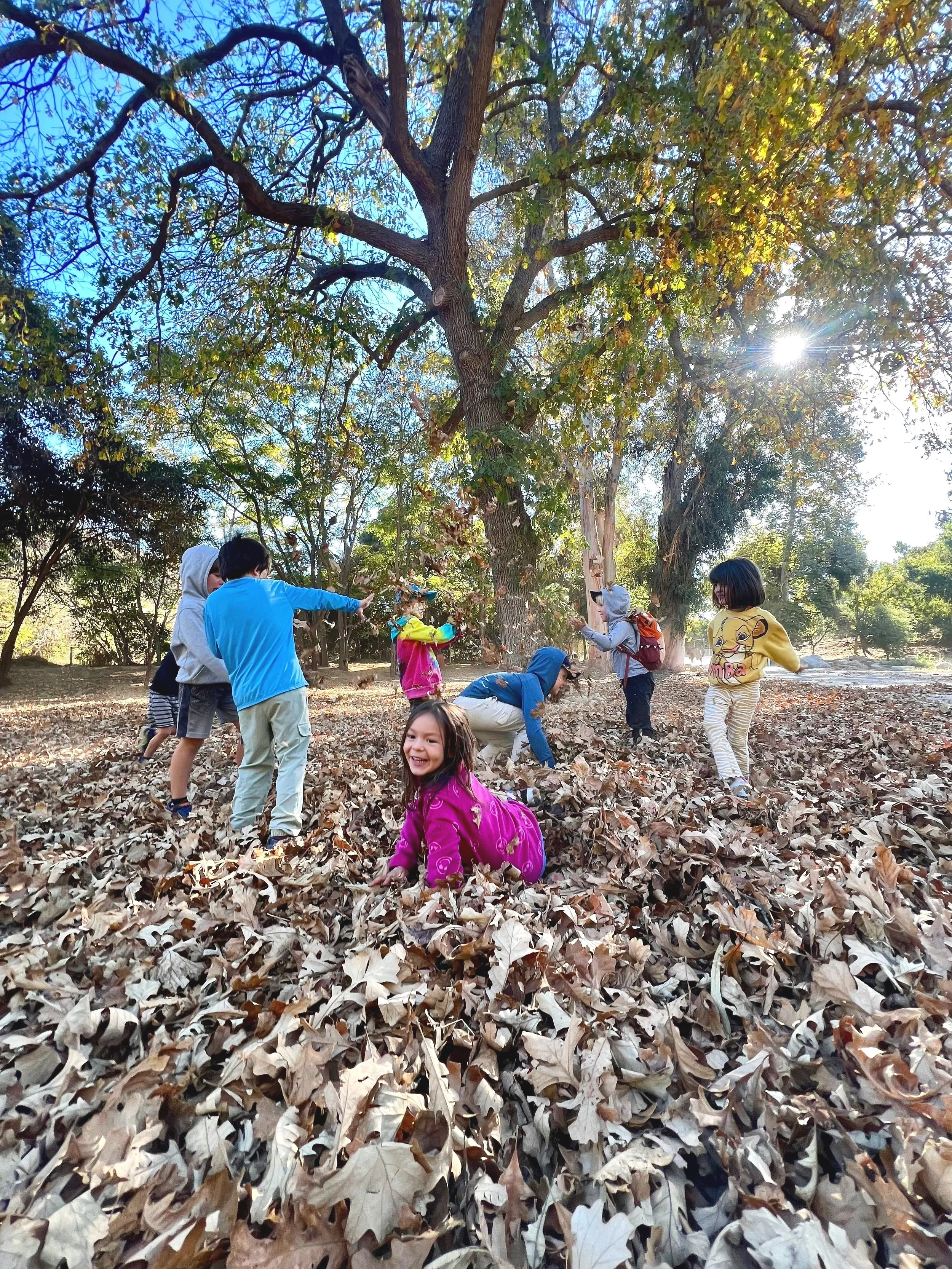Ventura Wild’s Teaching Philosophy
Four Stages of Nature Connection:
1. Sensory Awareness
By tuning into our senses, we expand our awareness of self and the world around us. In Ventura Wild, we soak in the many sensory experiences nature presents us, whether it’s feeling the wind whooshing across our skin and into the trees, dipping our fingers into a gurgling creek, or watching the clouds form and dissipate.
Physical Embodiment: By experiencing nature with our senses, we can more closely relate to the world around us, from the animals to the trees. A sense of knowing that we are all interconnected and part of nature.
Compassion and empathy: Knowing a place and the living things that inhabit that place leads to a knowing, a loving, and a responsibility.
Beauty: Acknowledging, embracing, and celebrating the beauty around us: Life as art and a value to our wholeness in its own right and its own purpose within an ecosystem.
Self-Directed Play: To practice, try, and direct is to learn. To decide and have control is empowering.
Mystery and the Unknown: I don’t know, what do you think? Can we be ok with not knowing?
2. Knowledge
Awareness leads to curiosity and a desire for knowledge. Nature builds learning skills and ignites not only an interest in the facts and systems of nature, but in the unknown, the mysteries and the complexity of life. Without this humility and potential for “not knowing” students are often overwhelmed with “learning it all”.
Exploring different experiences in nature informs our bodies and minds that life is full of diversity and intrigue. To experience the natural world in a way that facilitates deeper understandings is to learn responsibly; and leads to true comprehension and application.
Systems & Cycles
Scientific Inquiry & Curiosity
Critical Thinking & Problem Solving
Communication & Leadership Skills
3. Skills
The confident learner seeks understanding, challenges ideas, and welcomes mistakes. The skills engaged in Ventura Wild are life skills that provide not only competence and survival strategies, but also satisfaction and self sufficiency.
Scientific Inquiry and critical thinking naturally emerge when observing an anthill or building a raft with a friend. Many experiments and debates later…a child happily floats (sort-of) on their results, constantly storing away experiential data, problem-solving, and communication skills.
Feelings of frustration, satisfaction, and wholeness facilitate a curious mind leading to accurate information and informed choices. Mistakes, accidents, and misunderstandings lead to humility, compassion, and self sufficiency. The skills of nature connection at Ventura Wild come from experiencing a connected life and are followed by reflections that build wisdom in the human condition. Some of these skills include:
Empathy for All Forms of Life: Each living and non-living thing has innate value.
Embracing Sustainability as a Community Practice: Engaging in modeling behaviors and choices creates the ripples of change.
Making the Invisible Visible: Water, air, food, natural resources…knowing them from the source provides awareness and knowledge for different choices and a sustainable future.
Anticipating Unintended Consequences: Complexity and grand scale stems from the smallest and simplest of behaviors.
Understanding How Nature Supports Life: The layers of scale that repeat from micro to universal.
4. Stewardship and Conservation
The way toward a healthy planet is to raise nature-connected children. The complex and diverse systems and communities that build a resilient interdependent web of life must include human development. We cannot separate children and nature, nor can we ignore the challenges of division and apathy that pervade our current understanding of wilderness management, children’s education, and the failings of both. The social and emotional wellness of the child, the resiliency of family, and the unity and diversity of community is a lifestyle that is informed by natural systems not only as literal resources necessary for life, but also in the deep sense of belonging within the global interconnectedness of us all.
An investment in healthy children and families is an investment in local conservation as well as sustainability of our planet.
Access and Belonging: Shifting the historical paradigm toward equity and the simple feeling of belonging.
Personal Responsibility: The opportunity to take responsibility for nature and natural resources.
Community Engagement: Opportunities to support and contribute to communal well-being.
Leadership & Activism: Building skills that empower and initiate change and direction in the world.
Professional Opportunities: Professional opportunities that support the values and goals of a sustainable world, and knowing the ingredients to create our own future.
How we bring children and nature together
Learning erupts organically as an intuitive interaction between mentor, nature, and child.
This approach focuses on building relationships, crafting moments of reflection, and carefully guiding the learning process toward awareness, curiosity, practice, and joyful play.
We honor the natural learning rhythms that mimic the natural world and couple that with nurturing the multiple intelligences of youth in a holistic and playful fashion.


